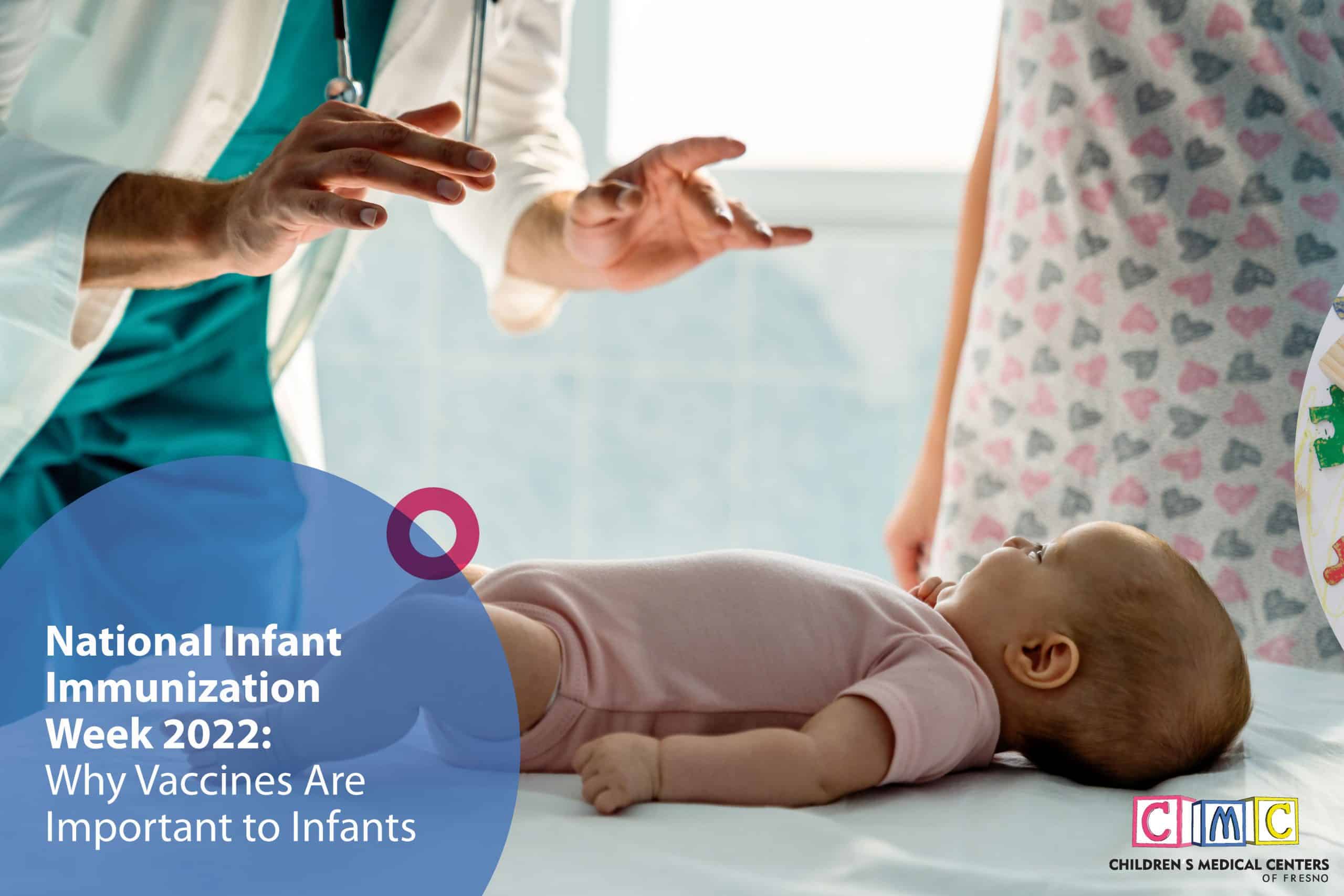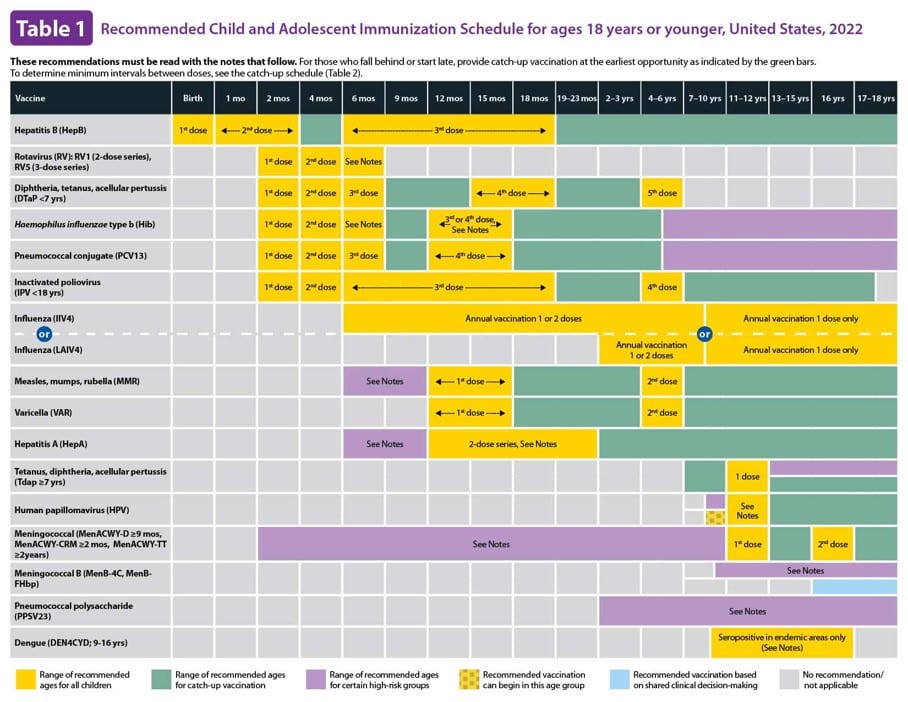
National Infant Immunization Week (NIIW) is a yearly initiative to highlight the importance of protecting children from vaccine-preventable diseases and celebrating the success of immunization programs in promoting healthy communities worldwide.
Vaccines have drastically improved children’s health. Worldwide, vaccines have prevented approximately 3 million deaths every year. Still, thousands of parents are having second thoughts about vaccinating their children because they are concerned about the safety of vaccines. This article explains how vaccines work and why it is vital to have your child immunized.
Smallpox and polio are just two of the diseases once common in the United States but are now nearly unknown because of vaccines. Vaccinations offer protection against serious diseases that can cause serious complications, especially in infants. They function by triggering the body’s immune system to produce antibodies against certain germs (bacteria or viruses).
Vaccines contain antigens, inactivated or weakened forms of a virus or bacteria. Antigens cause the body’s immune system to produce disease-fighting antibodies. These antigens stimulate an immune reaction in the body without causing illness.
These antibodies stay in the body and protect us from getting sick if we are exposed to the activated virus or bacteria later. The body’s immune system is highly adaptable, and vaccines help improve its ability to fight off certain infections.
Caring for a baby involves many important choices. One of the most crucial is to protect your child from disease through infant vaccination. It would be best if you immunize your child for the following reasons.
Immunizations have saved millions of lives and are still protecting people from diseases that once plagued the United States and other countries, such as
Some of these diseases can be fatal. Others can cause complications such as deafness, seizures, brain damage, or severe learning disabilities. Vaccines lower your child’s risk of severe complications by helping their immune system build antibodies against disease-causing viruses and bacteria before they become ill.
Learn more about 14 diseases that vaccines effectively prevent.
Despite what you may hear or read, there’s no scientific evidence that vaccines cause autism or other developmental disorders.
Vaccines are among the most carefully studied of all medical products. Before they are approved by the U.S. Food and Drug Administration (FDA) for use in children, vaccines go through a long development and testing process to ensure they are safe and effective.
Once a vaccine has been approved for use, several agencies like the CDC, FDA, National Institutes of Health (NIH), and independent organizations such as the Institute of Medicine (IOM) continue to monitor the safety and effectiveness of the shots.
Read Debunking Flu and Vaccination Myths
Immunization remains the most cost-effective and successful public health tool for preventing disease and mortality. Not only do vaccines protect vaccinated individuals, but they also protect entire communities from the spread of infectious diseases.
Doctors call this herd immunity, meaning when most people in a community have vaccines, it reduces the risk of others getting sick. When children receive recommended vaccinations on time, they also help protect others who cannot receive vaccinations due to their age or health, such as those with weakened immune systems.
Read about COVID-19 Vaccination for Children
Immunized children miss fewer school days than those without vaccinations. This scenario also results in their parents missing more workdays to care for them. Moreover, most diseases that vaccines prevent can require expensive and time-consuming treatment. It costs much less to vaccinate your child than to treat an illness that could have been prevented.
The best way to protect infants from vaccine-preventable diseases is to ensure they receive all immunizations according to the recommended schedule. So please keep track of your child’s vaccination schedule to ensure they receive all necessary vaccinations at the correct ages.
You’ll notice that most vaccines are given before a child reaches two years of age — this is because the diseases they prevent are most dangerous to infants and toddlers. If you wait until your child is older to vaccinate them, they may be unprotected when they are most vulnerable. These childhood vaccines can provide protection throughout life. Certain vaccines require booster shots later on in life to maintain their effectiveness.
The CDC outlines a schedule for when children should receive vaccines. All vaccinations on the immunization schedule have undergone thorough testing and are safe to administer together – even during the same appointment. Some children with special medical needs may require additional vaccines or may not be able to receive certain vaccines. Consult your child’s doctor on which infant shots are suitable for your little one.
An advisory committee of scientists, doctors, and public health specialists known as the Advisory Committee on Immunization Practices (ACIP) reviews the schedule annually. Committee members study the latest vaccine data and amend the schedule as needed.
The image below shows the recommended immunization schedule for 2022.

You might have some questions about your child’s routine shots. Here are the answers to a few of the most common ones.
Yes. It may seem like a lot, but babies’ immune systems can easily handle getting multiple vaccines at one time. As mentioned previously, both public health officials and medical professionals who specialize in childhood immune systems carefully review the vaccination schedule.
Vaccine side effects are generally mild and include soreness or swelling around the injection site. Some children may experience a low-grade fever or loss of appetite, but these symptoms usually subside within a few days. It is also possible for children to develop hives or a rash, but this is not common.
Severe adverse reactions like seizures, high fevers, and allergic reactions to vaccines are rare. Contact your child’s health care provider immediately if unusual issues arise. However, if your child has a severe allergic reaction, you should immediately call 911 and seek medical attention. You should then report the adverse reaction to the Vaccine Adverse Event Reporting System (VAERS). The FDA and CDC co-sponsors VAERS, a national vaccine safety surveillance program.
The cost varies by location and insurance coverage, but many shots are available for a reduced price or free at health centers. Read CDC’S guide to VFCs for more information on finding an affordable place to get your children’s shots.
Vaccines are made with weakened or killed versions of the viruses and bacteria that cause diseases. The vaccine stimulates the body’s immune system to build immunity to the disease. Once you come in contact with the disease in the future, your immune system recognizes it. Your body immediately produces antibodies to fight off the infection and makes you healthy again. Learn more about the vaccine ingredients.
Vaccines contain ingredients that your child may be allergic to. For example, gelatin egg proteins are present in certain vaccines. You should consult your doctor about alternative options for vaccinating your child if they are allergic to these ingredients or others.
The importance of getting your child vaccinated against preventable illnesses cannot be understated. It is safe, effective, and recommended to guard against even the most dangerous diseases. CMCFresno offers immunization for newborn and older children. Book an appointment today to ensure your child’s immunizations are up to date. Call us at (559) 455-1500 or browse our website for more information.